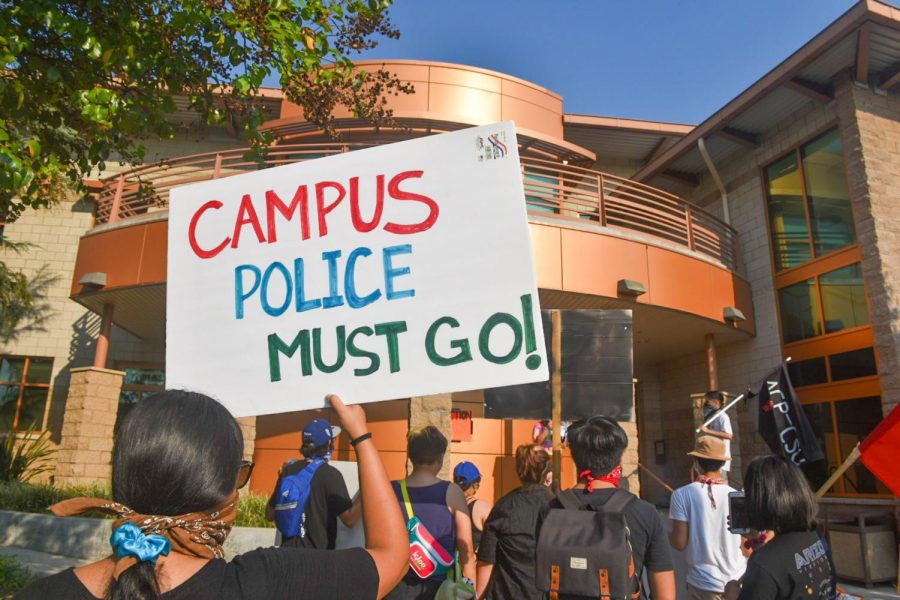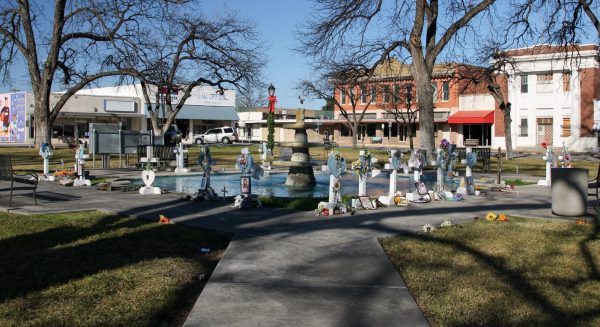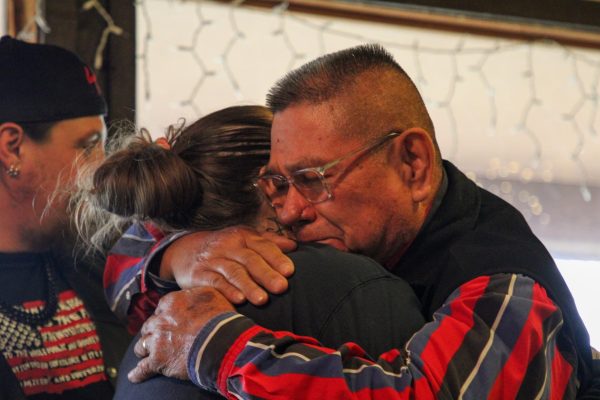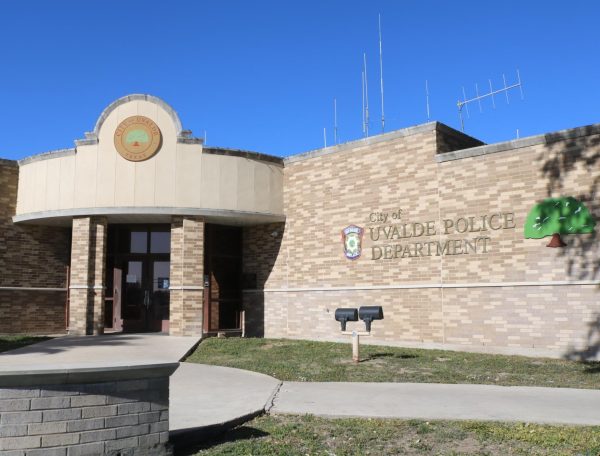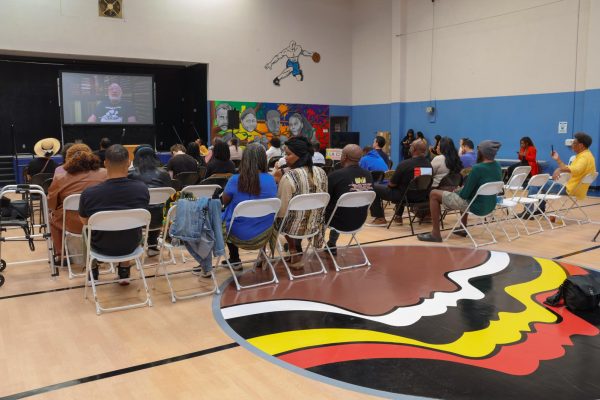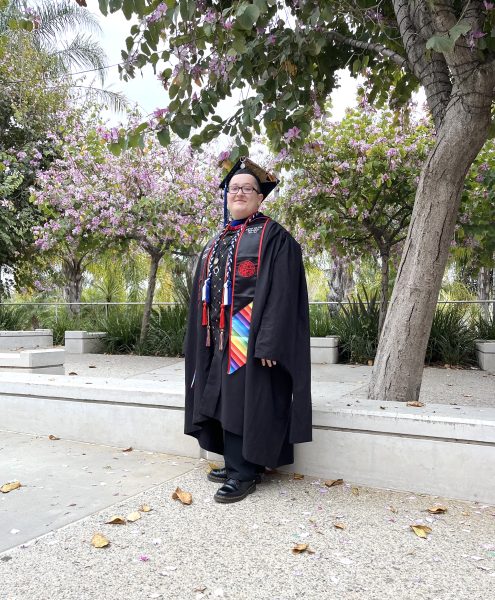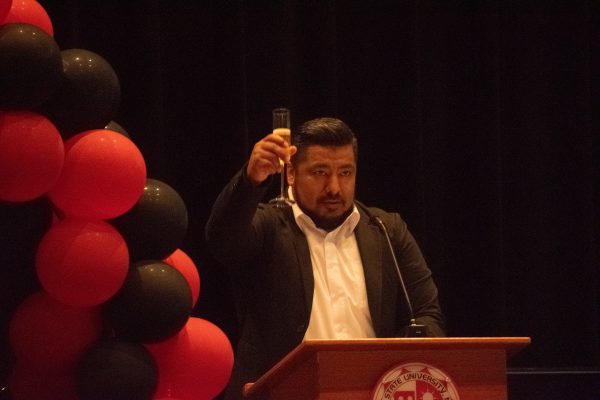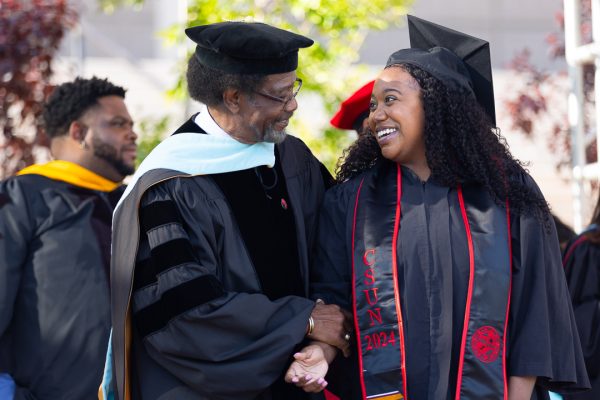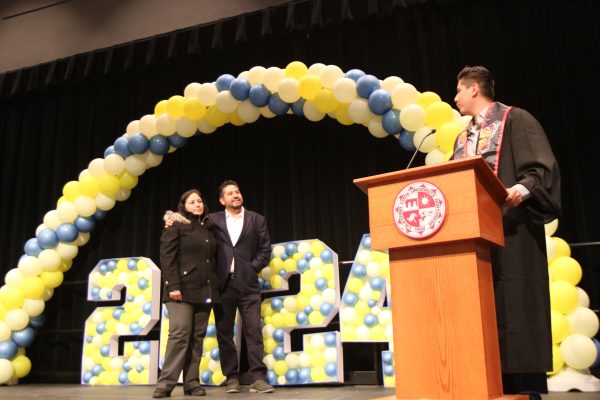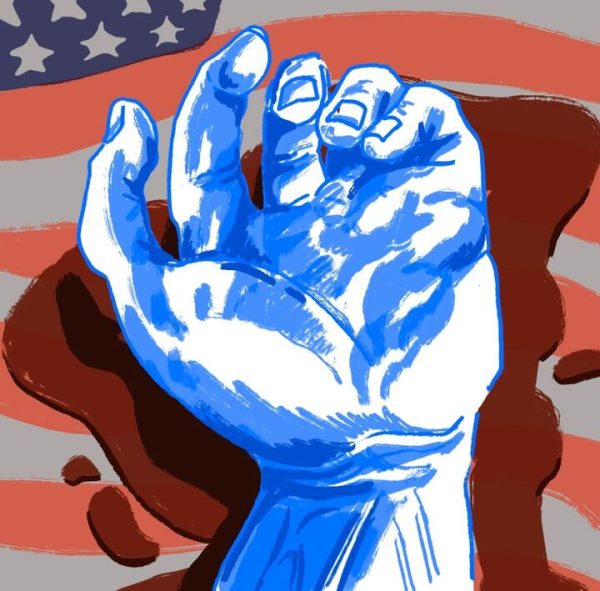Opinion: Police accountability laws are a step in the right direction. But more needs to be done.
A woman holds a sign that says, “Campus police must go,” during the “Cops off campus” protest organized by ACP-CSU on Thursday, Oct. 1, 2020.
October 25, 2021
California Gov. Gavin Newsom signed a number of laws on Sept. 30 that will make it easier for peace officers with misconduct records to not only lose their badge but to also stop them from leaving one law enforcement agency and simply joining another without repercussions.
These bills, including Senate Bill 2 and Assembly Bill 958, come more than a year following the murder of George Floyd with hopes that they will begin to rid agencies of the officers who have records of excessive force, racial discrimination, dishonesty, sexual assault and other actions of serious misconduct.
SB 2: Written by California State Senator Steven Bradford (D-Gardena) and California Senate President Pro Tempore Toni G. Atkins (D-San Diego), will decertify officers who engage in misconduct and establish an “independent civilian” nine-person commission — the Peace Officer Standards Accountability Advisory Board — to investigate allegations of officer misconduct. California joins 46 other states that currently have a police decertification process in place.
AB 958: introduced by California Assemblyman Mike Gipson (D-Carson), will require law enforcement agencies to terminate any officer who participates in a law enforcement gang, which is defined as “a group of law enforcement officers within an agency that engages in a pattern of specified unlawful or unethical on-duty behavior.” That information would now be required to be disclosed on any future application for that officer.
“SB 2 is the final product of two years of discussions, negotiations, and compromise,” Bradford said in a press release. “The bill will create a strong and effective method for California to remove bad officers in a fair and reasonable manner. Police have one of the most difficult jobs on the planet. A decertification system puts California back on track to restoring communities’ faith in men and women in uniform who do their job well.”
“This bill is about coming together to root out and remove systemic racism that lurks within our institutions, preventing more violence against people of color, and increasing safety and equality for all who call California home — that work continues,” Atkins said.
These measures are a win for the state and its citizens. They should be praised and appreciated as progress. If lobbying to defund the police will not be heard, then this is the way to spark change from within.
The murder of George Floyd was another stain on policing in America. It was a crime against its people. A crime that is guaranteed to be happening again, but the world might miss it next time because there won’t always be a camera around to record it. It is part of the reason many are calling to defund the police.
After last summer’s protests, Los Angeles Police Department Chief Michel Moore revealed an internal report had found that of the 73 allegations of non-deadly force, 33 investigations have been completed with no findings of any misconduct.
Accountability. That is one thing asked of government officials, our peers and ourselves. So why is it rarely asked of those sworn to protect us?
Could it be that in Los Angeles County, many of the men and women wearing a badge look out for themselves before civilians, or could it be the long history of police gangs that dates back more than 50 years?
A report by Jo Kaplan Feldman, executive director of the Center for Juvenile Law and Policy, and adjunct professor Sean Kennedy of Loyola Law School detailed evidence and the existence of 18 police gangs that date back as far as 1970. This project detailed a number of crimes that mirrored those of criminal street gangs, going as far as to celebrate these crimes, such as assault and murder. Kennedy says he believes officers are drawn to these police gangs to gain the benefits of protection of these groups, which include one named “The Executioners.”
However, even with the passing of AB 958 and SB 2, the major roadblock will continue to be the camaraderie that aligns many of those in law enforcement to stand together, and also draw officers to join these internal gangs in the first place.
It’s hard to be optimistic with a system of policing that has continuously failed the people with their safety and their respect. But progress toward changing a seemingly frozen-in-time system of policing should not go without applause.
Scott Geirman graduated from CSUN in 2020 with a degree in broadcast journalism with an emphasis in political science.
